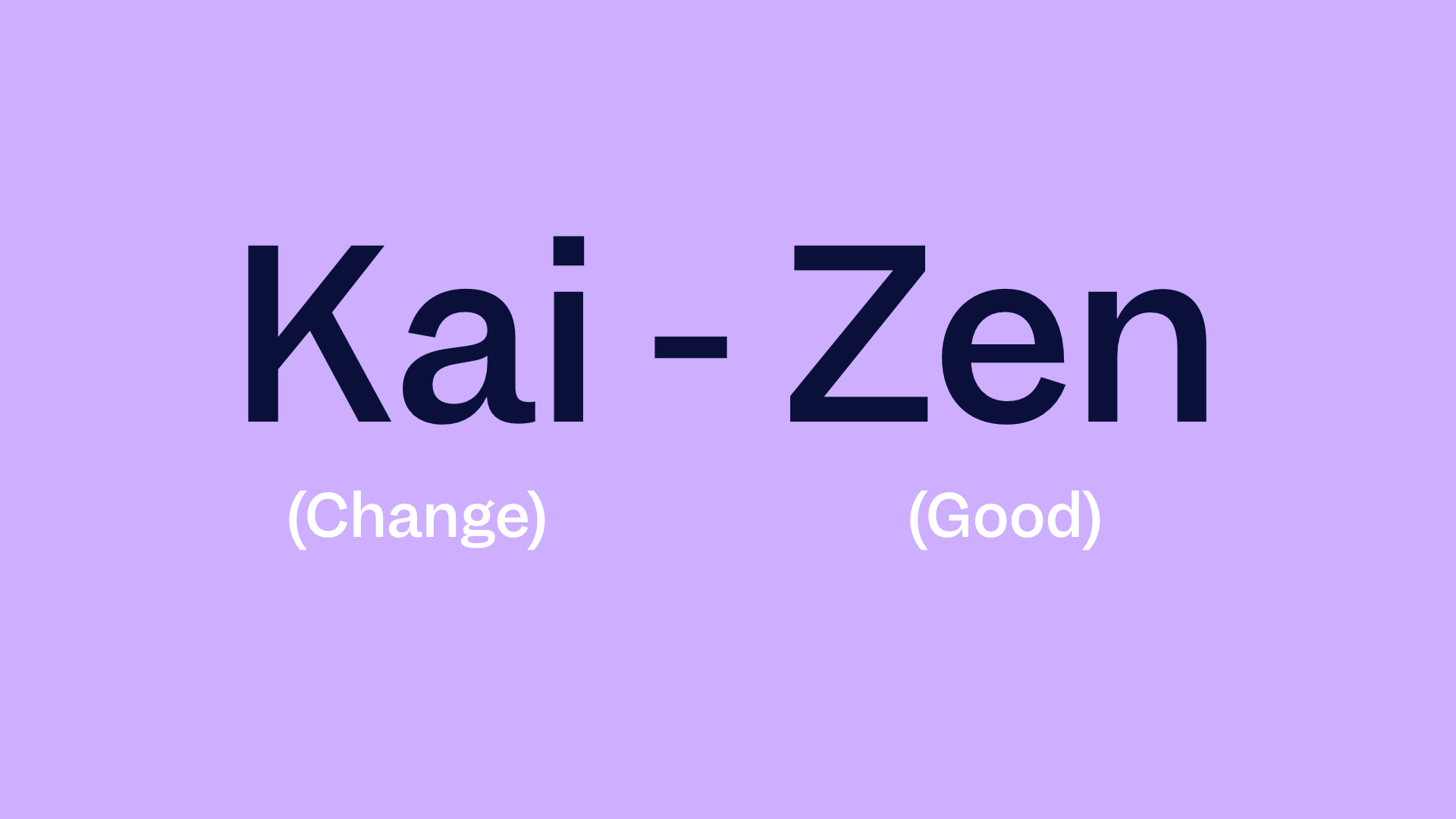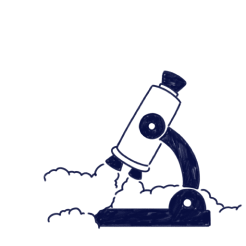
Quality Assurance (QA) is an essential process in life sciences organizations, regardless of their size. It involves ensuring that products, services, and processes meet specific standards and regulations, and meet the needs and expectations of customers and patients.
QA managers, specialists, and other QA professionals play a vital role in this process. They are responsible for ensuring compliance i.e. making sure that their organization meets current regulations and industry standards, as well as meeting the organization's policies, goals, and objectives.
To perform their duties and be successful in their roles as subject matter experts, they must have a comprehensive understanding of compliance topics that they are responsible for. They also need to gain a broad range of skills, including technical knowledge, problem-solving, project management, leadership, and communication.
The regulations of the US FDA and the EU GMP guidelines require that only qualified personnel are employed in the life sciences industry. At every level of quality assurance, it must be demonstrated that all professionals have undergone the necessary training in GMP.
Many professionals who work in QA roles have previously held positions in a laboratory or have an academic background. Without proper training, these professionals may struggle to adapt to their new position, leading to potential mistakes and setbacks in their work.
In order to acquire the necessary skills and knowledge, QA professionals can take a range of QA courses, and seminars and get certifications to boost their mastery in quality skills to advance their careers.
Certifications are offered by various organizations, including regulators, professional associations, universities, and others.
Would you like to know what QA courses, seminars, and conferences you can do? We've compiled a selection of courses, as well as certifications you can obtain.
Here are some of the most popular programs for QA professionals to consider:
Our selection of courses and certifications
Paid online resources
ECA Academy – GMP and GDP Certification Program
The ECA Academy's GMP and GDP Certification Program is a comprehensive qualification curriculum designed for professionals in the pharmaceutical and biopharmaceutical industries. Established by the ECA Foundation, the program aims to support industry and regulatory personnel in promoting harmonized Good Manufacturing Practice (GMP) and Good Distribution Practice (GDP) guidelines.
- Target learner:
Quality Assurance Managers - Requirements:
Not applicable - Format:
Live online, on demand - Final Exam:
No - Certificate of Completion:
Yes - Accreditation:
by ECA Academy - Recertification required:
Yes, every 2 years - Accreditation:
ECA Certification Programme. To get the certificate, the learner must attend three out of the following courses/conferences. After attending the third course, the applicant obtains the certificate “ECA Certified Quality Assurance Manager. - Program:
There are 15 different programs. Programs include Change Control, Quality Risk Management, CAPA, Deviation Management, GMP for Medical Devices, and more. One of the programs is the ECA Quality Assurance Manager. To get the certificate, the learner must attend three out of the courses/conferences below. After attending the third course, the applicant obtains the certificate “ECA Certified Quality Assurance Manager”.
ASQ – Certified Manager of Quality/Organizational Excellence (CMQ/OE)
The Certified Manager of Quality/Organizational Excellence (CMQ/OE) is a prestigious certification offered by the American Society for Quality (ASQ). It is designed for professionals who lead and manage quality initiatives across various industries, including the medical device, pharmaceutical, and healthcare sectors.
- Target learner:
Quality Managers, regulatory and compliance professionals, project managers - Requirements:
Minimum 10 years of on-the-job experience in one or more of the areas of the program, or minimum 5 years of on-the-job experience in a "decision-making" position. - Format:
e-learning, live-virtual, or face-to-face - Final exam:
Yes - Certificate of completion:
Yes (ANSI-accredited under ISO 17024) - Accreditation:
This certification program is accredited by ANSI under the ISO 17024 standard - Recertification required:
Yes, every 3 years - Program:
The CMQOE certification covers leadership, strategic planning, project management, quality tools, supply chain management, regulatory compliance, and more.
RAPS e-Learning – Regulatory Certificates
The Regulatory Affairs Professionals Society (RAPS) offers a comprehensive e-learning platform featuring various Regulatory Affairs Certificate Programs designed to enhance the expertise of professionals in the healthcare product sector, including medical devices and pharmaceuticals. These programs are structured to provide both foundational knowledge and specialized insights, catering to individuals at different stages of their regulatory careers.
- Target learner:
Regulatory professionals & QA Managers - Requirements:
Not applicable - Format:
Online - Final exam:
No - Certificate of completion:
Yes, after completing all the courses of the program selected - Accreditation:
by RAPS - Recertification required:
No - Program:
There are over forty courses to choose from, all focused on regulatory strategy, quality control, and compliance. You can customize your certificate program, so you can specialize in medical devices, and pharmaceuticals, or study both specialties together with the dual certificate program.
ASQ – Six Sigma Green Belt Certification (CSSGB)
The ASQ Six Sigma Green Belt Certification (CSSGB) is a globally recognized credential for professionals involved in process improvement initiatives using Six Sigma methodologies. Offered by the American Society for Quality (ASQ), this certification is designed for individuals who work on Six Sigma projects as part of their job but do not lead them full-time. It is ideal for those in quality assurance, manufacturing, healthcare, engineering, and other industries that prioritize process optimization.
- Target learner:
QA professionals with process improvement roles - Requirements:
Candidates must have three years of on-the-job experience in one or more areas of the Six Sigma Green Belt Body of Knowledge - Format:
e-learning, live-virtual, face-to-face - Final exam:
Yes - Certificate of completion:
Yes (ANSI-accredited under ISO 17024) - Accreditation:
This certification program is accredited by ANSI under the ISO 17024 standard - Recertification required:
No - Program:
The CMQOE certification is designed for QA professionals who need to learn:- Six-sigma overview: goals, lean principles, and six-sigma methodologies
- Six-sigma phases: define, measure, analyze, improve, control
SGS – ISO 9001:2015 Auditor/Lead Auditor Training
The SGS ISO 9001:2015 Auditor/Lead Auditor Training is a professional course designed for individuals who want to become certified auditors or lead auditors for Quality Management Systems (QMS) based on the ISO 9001:2015 standard. This training is ideal for professionals in quality assurance, regulatory compliance, and auditing who need to perform first-party (internal), second-party (supplier), or third-party (certification) audits.
- Target learner:
QA professionals conducting audits - Requirements:
Learners are expected to have the following prior knowledge:- Management systems, including the core elements of a management system, the responsibilities of top management, and the Plan, Do, Check, Act (PDCA) cycle.
- The fundamental concepts of a quality management system and the seven quality management principles of ISO 9000.
- The requirements of ISO 9001 and its commonly used quality management terms and definitions.
- Format:
Blended course or classroom-based - Final exam:
Yes - Certificate of completion:
Yes (SGS Approved or CQI/IRCA certified) - Accreditation:
SGS Approved or CQI/IRCA certified (course certification number 17977-PR238) dependent on location. - Recertification required:
Yes - Program:
Teaches audit skills, management systems, and compliance strategies. The training is usually delivered through a combination of classroom lectures, interactive exercises, case studies, and role-playing. Some programs might incorporate online learning components.
CQI-IRCA – Quality Management Training
The CQI-IRCA Quality Management Training is a globally recognized certification program designed for professionals looking to develop their expertise in Quality Management Systems (QMS) and auditing. The training is provided by the Chartered Quality Institute (CQI) and the International Register of Certificated Auditors (IRCA)—two leading organizations in the field of quality assurance and auditing.
- Target learner:
QA professionals advancing to strategic levels - Requirements:
Quality Managers who are already working in a quality role who wish to develop their knowledge and skills or Quality Managers looking to advance to a strategic level and aspiring to become a Chartered Quality Professional. - Format:
Up to 3 years to complete - Final exam:
Yes - Certificate of completion:
Yes (CQI Accredited) - Accreditation:
By CQI - Recertification required:
No - Program:
There are three types of courses: Foundation, Practitioners, and Professionals. Two training awards are offered: Practitioner Certificate of Quality Management of Professional Certificate of Quality Management. - Practitioner certification covers the following program:
- Process Performance
- Management Systems
- Change and Continual Improvement
- Problem-Solving
- Supply Chains
- Customer Excellence
- Quality Planning
- Managing and Influencing Stakeholders
- Professional certification covers leading:
- Enterprise Performance Measurement
- Quality Strategy and Planning
- Business Process Excellence
- Supply Chain Assurance
- Strategic Change and Improvement
- Enterprise Risk Management
GxP Training - Online Quality Assurance courses.
A comprehensive library of online QA courses designed for career advancement in the life sciences. Practical skills in key areas such as cGxP, pharmaceutical quality, good documentation practices, and quality risk management are developed.
- Target learner:
Quality Assurance professionals - Requirements:
Not applicable - Format:
Online, access 24/7 to the course for 12 months at your own rhythm. - Final exam:
Yes - Certificate of completion:
Yes - Accreditation:
CEU (continuing education units) and CPD (continuing professional development) - Recertification required:
No - Program:
There are over 19 QA courses to enroll in. They are accredited compliance and regulatory training sessions designed for life sciences professionals. Some examples are:- Introduction of Current Good Practices (cGXP)
- Introduction to Pharmaceutical Quality
- Good Documentation Practice (GDocP)
- Good Documentation and Record Retention
- Quality Risk Management
ISPE - Best of Pharma Series: Quality & Regulatory
The ISPE Best of Pharma Series provides learners with cutting-edge insights into pharmaceutical quality and regulatory trends. You'll gain best practices and strategic thinking from global health authorities and leading pharma organizations.
- Target learner:
Quality Assurance and Regulatory professionals - Requirements:
Not applicable - Format:
Online, access 24/7 - Final exam:
Not applicable - Certificate of completion:
Not applicable - Accreditation:
Not applicable - Recertification required:
No - Program:
There are over 78 conference presentations featuring more than 46 hours of content. They offer compelling insights, strategies, and best practices from experts representing global health authorities and leading pharma organizations.
AAMI - Process Validation Requirements & Industry Practices
Gain mastery of process validation for medical devices with AAMI's intensive 3-day virtual training where you'll gain practical tools and techniques for FDA Quality System Regulation process validation.
- Target learner:
Professionals in the medical device industry such as R&D Team Members, Quality Engineers, Quality Assurance Managers, Design Engineers, Project/Program Managers, and Process Engineers. - Requirements:
The course is recommended for professionals who already have a basic understanding of the Quality System regulation and have some relevant work experience. - Format:
Live virtual 3-day training - Final exam:
Yes - Certificate of completion:
Yes - Accreditation:
American National Standards Institute (ANSI) - Recertification required:
No - Program:
This 3-day course offers practical tools and techniques for FDA Quality System Regulation process validation and guidance from the Global Harmonization Task Force. It covers planning, protocol development, validation execution, monitoring, control, and re-validation, incorporating industry best practices and real-life examples to align with FDA standards.
13485 Store - ISO 13485 Training Courses
Enhance your expertise in ISO 13485 quality management systems with a diverse selection of online training courses offered by the 13485 Store. Professionals can deepen their understanding of various aspects of ISO 13485, from foundational principles to advanced topics.
- Target learner:
Professionals in the medical device industry who are interested in learning about ISO 13485 Quality Management Systems. - Requirements:
Not applicable - Format:
Online, access 24/7 - Final exam:
Yes, there is an assessment at the end of each course - Certificate of completion:
Yes, a printable certificate of completion is included - Accreditation:
Depends on the course provider - Recertification required:
No - Program:
The ISO 13485 Store offers over 20 courses focusing on various aspects of ISO 13485 and quality management in the medical device industry. Course topics are comprehensive, catering to a broad range of interests and learning objectives within the field.
Each course includes a reference guide PDF, along with audio and video materials, designed to enhance the learning experience. The time to complete each course varies between 2 to 20+ hours.
Udemy - ISO 9001:2015 Quality Management System Auditor
Develop the skills and knowledge needed to become a certified ISO 9001:2015 Quality Management System auditor with this comprehensive Udemy course. This program covers the core requirements of ISO 9001:2015, provides guidance on implementing a QMS, and equips learners with the techniques necessary to plan, perform, and report on effective QMS audits.
- Target learner:
Designed for professionals engaged in quality management within their organizations, including Quality Engineers, QA/QC Specialists, Quality Managers, and those aspiring to become certified QMS Auditors or Implementers. - Requirements:
No previous knowledge is required but familiarity with management systems is useful. - Format:
Online, access 24/7 - Final exam:
Yes, there is a quiz to test your knowledge at the end - Certificate of completion:
Yes - Accreditation:
No - Recertification required:
No - Program:
This course offers 5 hours of on-demand video and 5 downloadable resources, guiding you through the implementation and auditing of a Quality Management System per ISO 9001. You will learn:- The requirements for a Quality Management System according to ISO 9001
- How to implement a Quality Management System and comply to the requirements of ISO 9001:2015
- How to audit a Quality Management System
- Plan, perform, and report QMS audits
- Auditing a management system according to ISO 19011:2018
AAPS - Pharmaceutical Quality Assurance and Quality Control Diploma Program
Prepare for a successful career in the pharmaceutical industry with AAPS's comprehensive Pharmaceutical Quality Assurance and Quality Control Diploma Program. The curriculum is designed and delivered by industry experts, ensuring that graduates are well-prepared for the demands of the pharmaceutical workplace.
- Target learner:
Professionals seeking comprehensive training for a career in the pharmaceutical industry, particularly in laboratory settings. Ideal candidates include recent graduates and professionals aiming to specialize or advance in pharmaceutical analysis, quality assurance, regulatory affairs, and practical laboratory work within GMP environments. - Requirements:
BSc. (or equivalent) or higher level of education. - Format:
Offers the program in-class in Toronto as well as online and takes 43 weeks to complete. - Final exam:
Yes - Certificate of completion:
Graduates will receive a Post-Graduate Diploma on Pharmaceutical Quality Assurance and Quality Control. - Accreditation:
Accredited as a vocational program under the Private Career Colleges Act, 2005. The program's approval and accreditation come from the Private Career Colleges Branch, which is part of the Ministry of Colleges and Universities. - Recertification required:
No - Program:
This program is meticulously designed to equip students with comprehensive knowledge and practical skills essential for excelling in the fields of Pharmaceutical Analysis, Quality Assurance, and Regulatory Affairs. Delivered by pharma experts, the curriculum ensures that participants receive an in-depth education grounded in real-world applications by working in a cutting-edge laboratory that simulates working in a GMP environment.
Medical Device HQ – Courses on quality and regulatory affairs
Medical Device HQ offers a comprehensive selection of online courses and certifications tailored to professionals in the medical device industry. These courses focus on quality affairs and regulatory compliance, providing in-depth knowledge and practical skills. Courses are CPD accredited and awards CPD points.
- Target Learner:
Regulatory and QA professionals - Requirements:
A background in a related field such as engineering, science, or healthcare is recommended. Some courses may have specific prerequisites, which will be detailed in the individual course descriptions. - Format:
Online, blended courses (online + live virtual classroom) - Final Exam:
Yes - Certificate of completion:
Yes - Accreditation:
CPD accredited - Recertification required:
No - Program:
Courses on quality management of medical devices, ISO 13485, Implementation and maintenance of a medical device QMS.
Free online resources
Scilife Academy
Scilife Academy is an open educational platform dedicated to fostering continuous learning and professional growth in the field of quality assurance, particularly within the life sciences sector. It offers a diverse range of courses and certifications designed to enhance knowledge and skills in quality management systems, regulatory compliance, and related areas.
- Target learner:
Quality Assurance professionals - Requirements:
Not applicable - Format:
Online, free access 24/7 - Final Exam:
No - Certificate of Completion:
No - Accreditation:
Scilife - Recertification required:
Yes, every 2 years - Program:
Access is free. You will find a selection of training courses and webinars about quality topics, regulations, guidelines, and methodologies, offered free to Life Science companies that are subscribed to the Scilife Quality platform. For example:
- Smart Quality mindset in your organization
- Smart Quality in Life Sciences (Part I & Part II)
- Quality and Quality Management System
- The QMS pyramid model
- Document control according to ISO 9001
- The management and control of records
- Electronic records and electronic signatures
- How an eQMS/EQMS provides value to your organization
- Smart Quality mindset in your organization
USP – Foundations of Good Manufacturing Practices
The USP – Foundations of Good Manufacturing Practices (GMP) course is designed to provide learners with a comprehensive understanding of the key principles, regulations, and practices associated with GMP. It focuses on ensuring that manufacturing processes in the pharmaceutical, biotechnology, and related industries produce safe, effective, and high-quality products consistently.
- Target learner:
Professionals who work in medical products production and quality assurance. - Requirements:
Not applicable - Format:
Online, free access 24/7, each module takes approximately 30-45 minutes to complete - Final exam:
No - Certificate of completion:
No - Accreditation:
USP - Recertification required:
Yes, every 3 years - Program:
This free online course provides an overview of essential GMP principles and requirements. It covers key principles of the WHO and PIC/S standards and will equip participants with a broad, foundational understanding of GMP.- The course includes ten modules on GMP related to:
- Active Pharmaceutical Ingredient (API) production
- Auditing
- Data Integrity and Computer System Validation
- Deviations, Root Cause Analysis (RCA) Tools, and Corrective and Preventive Action (CAPA)
- Finished Dosage Form production
- Heating, Ventilation, and Air Conditioning (HVAC) Systems
- Qualification of facilities, equipment, and utilities
- Quality Risk Management
- Validation
- Water Systems
Coursera (Johns Hopkins University) – Clinical Trials Data Management & Quality Assurance
The Coursera Clinical Trials Data Management & Quality Assurance course offered by Johns Hopkins University is designed for professionals involved in clinical research, particularly those focusing on the management, analysis, and quality assurance of clinical trial data. This course offers practical insights into the clinical trial process, with a focus on maintaining high standards of data quality and integrity.
- Target learner:
Professionals who work in medical products production and quality assurance. - Requirements:
Learners need to have some familiarity with basic scientific, statistical, and management concepts. - Format:
Online, free access - Final exam:
No - Certificate of completion:
Yes - Accreditation:
by Johns Hopkins University - Recertification required:
No - Program:
In this free course, you’ll learn to collect and care for the data gathered during a trial and how to prevent mistakes and errors through quality assurance practices. The expected dedication is 7 hours.
Alison – ISO 9001:2015 Non-Conformances & Corrective Actions
The Alison – ISO 9001:2015 Non-Conformances & Corrective Actions course is designed to provide learners with a detailed understanding of how to identify, manage, and resolve non-conformances in an ISO 9001:2015 quality management system (QMS). This course is ideal for professionals working in organizations that are ISO 9001 certified or are in the process of implementing ISO 9001:2015 standards.
- Target learner:
Professionals who work in quality assurance and/or quality control, as well as aspiring auditors. - Requirements:
Learners will benefit from having a basic understanding of quality management systems, ISO standards, and the principles of auditing. - Format:
Online, free access 24/7 - Final exam:
Yes - Certificate of completion:
Yes, available at an additional charge. - Accreditation:
CPD UK - Recertification required:
No - Program:
This course offers a comprehensive exploration of ISO 9001:2015, including defining objective evidence, clarifying common misconceptions, explaining audit report terminology, and detailing both the basic elements and advanced principles of the standard.
It provides clarity on conducting audits, what auditors look for, and what auditees should expect, making it a crucial resource for anyone looking to enhance their understanding and application of ISO 9001:2015 in quality management. The hours of learning are between 1.5-3 hours.
Top Benefits of Online QA courses and certifications
Digitization has brought about significant transformations for both QA managers and professionals in life sciences companies.
The way quality assurance training is conducted has shifted towards being web-based and using social media channels. In order to stay relevant and effectively tackle the changing landscape, employees must continually update their knowledge and skills.
This entails a continuous learning process in which the employees' information-gathering methods must be adjusted to meet their evolving needs. To make this happen, companies must come up with appropriate training opportunities and employees must be willing to partake in them.
E-learning can give your organization the opportunity to monitor employee progress and retain top talent. Online training certificates are worth the time and resources. Here are some benefits of enrolling in e-learning QA courses:
Professional growth and skill enhancement
While training certification courses require effort and resources, QA professionals value the opportunity to enhance their skills and advance their careers. Gaining certifications boosts confidence and prepares professionals to meet industry demands. Continuous learning fosters skill development and strengthens competencies in quality excellence.
Audit readiness and compliance
Audits can be stressful and time-consuming, with potential costs if non-compliance issues arise. Online training and certification programs ensure QA professionals complete comprehensive quality training and pass final exams to demonstrate their competence.
Flexibility and convenience
Online courses allow professionals to learn at their own pace while balancing work commitments. With remote access, training can happen anytime, anywhere.
Cost-effectiveness
Many free and affordable programs provide valuable skills, enabling professionals to grow without significant financial investment.
Global recognition and networking
E-learning connects professionals with online communities, industry experts, and international certifications, keeping both individuals and their workplaces at the forefront of compliance. The accessibility of the internet and intranet makes learning, communication, and knowledge-sharing easier, regardless of time and location.
Career advancement
Certifications from accredited institutions enhance career prospects, setting professionals apart in the job market. By leveraging online training, QA professionals and organizations can stay ahead in an industry that demands continuous improvement and compliance.
Conclusion: Do QA courses for your organization and your career
In 2025, ongoing learning remains crucial for QA professionals in the life sciences industry. By enrolling in relevant courses and obtaining certifications, QA specialists can ensure compliance, enhance their skills, and progress in their careers.
Whatever sector of the life sciences industry you work in, quality assurance is increasingly vital. As a QA professional, maybe you need to adapt to new processes or regulations. As a manager, maybe you require your employees to undergo the latest training so that everyone's skills are up to date. And at every level, maybe your organization wants to stay abreast of the most recent innovations in quality.
We outlined for you a range of courses, paid and free, that can aid your development within QA and the life sciences. Among them is the Scilife Academy, a dedicated learning hub designed for quality professionals at all levels. Trusted by hundreds of life sciences professionals, Scilife Academy helps sharpen expertise and drive compliance within organizations. We look forward to welcoming you to our community!
Start your learning journey for free with the Scilife Academy.







